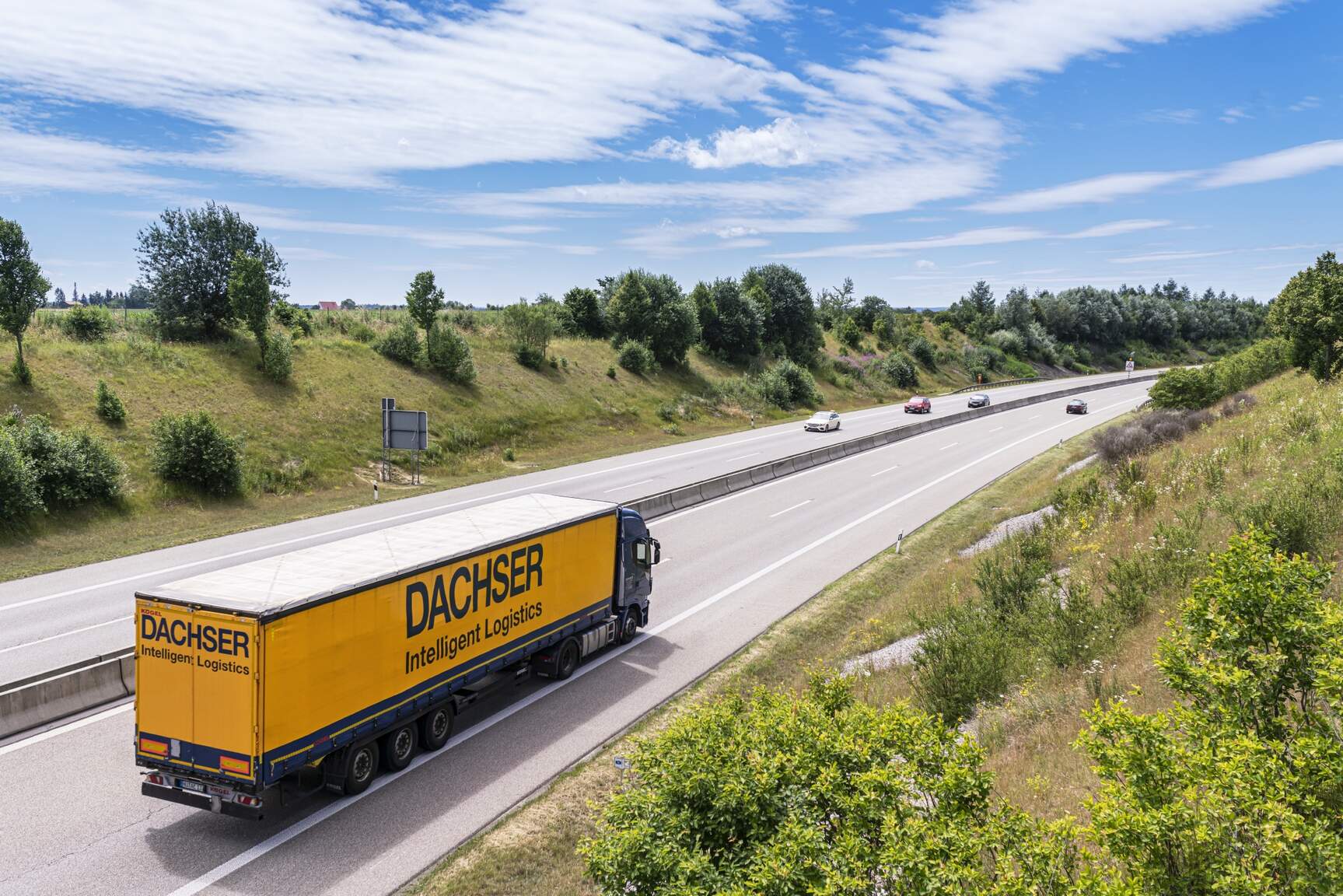Customer confidence strengthened: Dachser is satisfied with the year´s results
Virtually no dip in company revenue in 2020, the year blighted by Covid-19, with the strong second half offsetting the impact of the European lockdowns in April and May. Investments of EUR 190 million earmarked for logistics capacity, technical equipment, and digital systems.
Kempten, April 13, 2021 - Dachser can look back on a successful 2020, which was characterized by the loyalty and climate of mutual trust between the logistics provider, its customers, and its transport partners. Dachser’s consolidated net revenue totaled EUR 5.61 billion, a slight decrease of 0.9 percent compared to the previous year.

“We have delivered on our promise to be a rock of stability during the coronavirus crisis,” says Dachser CEO Burkhard Eling. “The enormous encouragement of our customers and partners has been a great source of motivation. Special thanks are due to our staff and all those who drive on behalf of Dachser, who made last year such a success. Despite the extra burdens imposed by Covid-19, their performance was remarkable and they shouldered the responsibility that comes with systemic relevance at all times.”
Dachser kept its customers’ global supply chains running without interruption and came up with flexible solutions to capacity bottlenecks, particularly on intercontinental freight services. At the same time, the company provided the best possible protection for its employees’ health and supported its longstanding service partners in Europe.

“Following a solid first quarter, the lockdowns in many European countries meant sometimes drastic declines in overland transport shipments,” says Dachser CEO Eling. “There was a clear improvement by June, however, with volumes remaining more or less consistently above 2019 levels. Our business model has proved that it can withstand crises, at the same time boasting strong growth potential and adaptability,” Eling is delighted to report.
Dachser CEO, Burkhard ElingIn contrast to the decline of 2.2 percent in the Road Logistics business field, the Air & Sea Logistics business field saw growth of 5.2 percent. The business field benefited from having air freight charter capacity of its own as well as from high freight rates for intercontinental transport. At the Group level, the number of shipments dropped by 2.5 percent to 78.6 million, while tonnage fell by 2.9 percent to 39.8 million metric tons.
Business development in detail
Staying in the driver’s seat
Eling emphasizes that Dachser refused to let the coronavirus crisis dictate its actions. This applies both to the generational change on the Executive Board—prepared in 2020 and finalized on January 1, 2021—and to investment planning. “Last year, we invested EUR 142.6 million in our global logistics network. This year, we are earmarking some EUR 190 million to create additional contract logistics capacity and forge ahead with digitalizing processes and business models.” The newly created IT & Development executive unit headed by Chief Development Officer Stefan Hohm will figure prominently in this regard.
According to Eling, the high equity ratio of 61.6 percent and the shareholders’ clear allegiance to the family-owned company give Dachser the support it needs to continue its tried-and-true policy of growth by drawing on its own resources. Moreover, the coronavirus crisis has reinforced Dachser’s commitment to training, particularly for drivers and logistics operatives, that is deeply rooted in its corporate culture. In 2020, despite the constraints of the coronavirus crisis, 625 new trainees and students on dual degree programs started their careers at Dachser in Germany.
“Our goal is to preserve the company’s strengths while enhancing its agility. In other words, we are expediting the integration of our networks and the introduction of digital technologies for use in areas such as machine learning or swap body localization. We will also be stepping up our sustainability and climate protection efforts,” Eling says. “Over the next two years, we intend to start by expanding our DACHSER Emission-Free Delivery areas to at least eleven European cities, while deploying more battery electric trucks and electrically assisted cargo bikes. What’s more, as a member of the German Hydrogen and Fuel Cell Association, we are actively supporting the research and testing of hydrogen fuel-cell drives for trucks.”